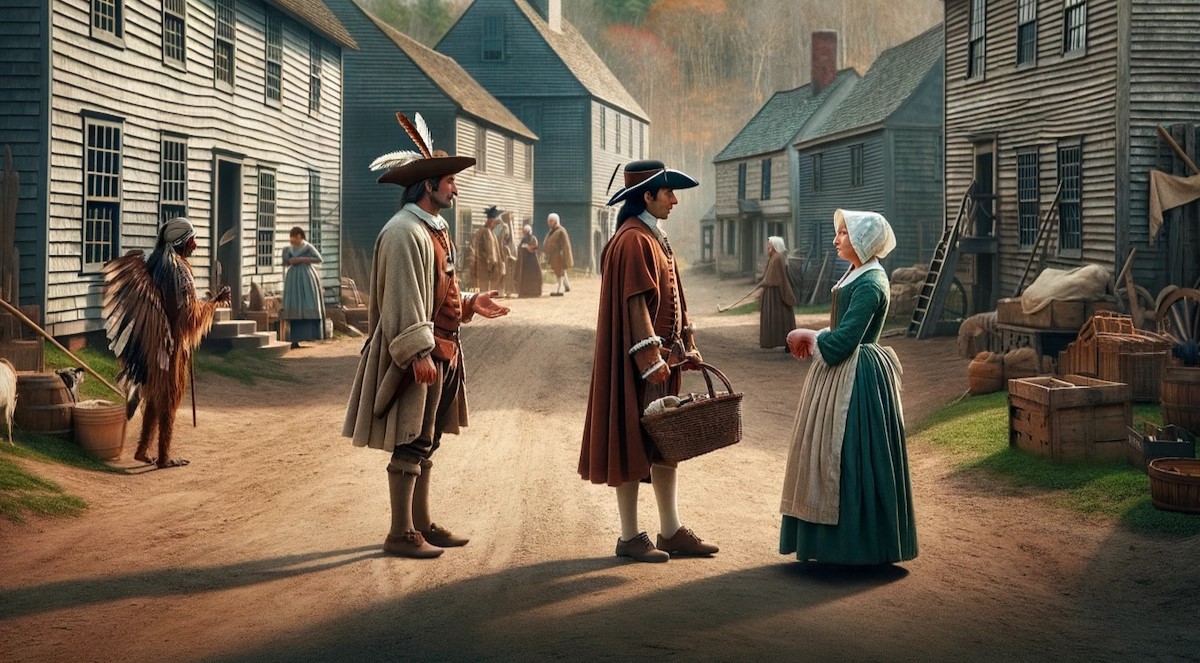
Colonial America was a time of adventure, hardship, and growth. From the early 1600s to the late 1700s, settlers from Europe established colonies along the eastern coast of what is now the United States. Why did they come? Many sought religious freedom, economic opportunities, or a fresh start. Life in the colonies was tough, with settlers facing harsh winters, unfamiliar lands, and conflicts with Native American tribes. Yet, these challenges forged a resilient spirit among the colonists. They built communities, developed trade, and laid the groundwork for a new nation. Curious about the daily lives, struggles, and triumphs of these early Americans? Let's dive into 26 fascinating facts about Colonial America that will transport you back to this pivotal era in history.
Early Settlements
Colonial America began with the establishment of early settlements. These communities laid the groundwork for what would become the United States.
- Jamestown, founded in 1607, was the first permanent English settlement in North America.
- The Pilgrims established Plymouth Colony in 1620 after arriving on the Mayflower.
- The Dutch founded New Amsterdam in 1625, which later became New York City.
- Maryland was established in 1632 as a haven for English Catholics.
- Rhode Island, founded by Roger Williams in 1636, was known for its religious tolerance.
Daily Life in the Colonies
Life in Colonial America was challenging but also full of community and tradition. Daily routines varied depending on the region and the time period.
- Colonists primarily lived in small, rural communities.
- Most homes were simple, one-room structures made from wood or brick.
- Agriculture was the main occupation, with tobacco, rice, and indigo being key crops.
- Colonists relied on bartering goods and services due to the scarcity of money.
- Education was often conducted at home or in small, local schools.
Colonial Government
The governance of the colonies evolved over time, influenced by both English traditions and the unique circumstances of the New World.
- The Virginia House of Burgesses, established in 1619, was the first representative assembly in America.
- The Mayflower Compact of 1620 was an early form of self-government agreed upon by the Pilgrims.
- Colonial governors were often appointed by the British Crown.
- Town meetings in New England allowed male landowners to vote on local issues.
- The Fundamental Orders of Connecticut, adopted in 1639, is considered the first written constitution in America.
Relations with Native Americans
Interactions between colonists and Native Americans were complex, ranging from trade and cooperation to conflict and displacement.
- The Powhatan Confederacy initially helped the Jamestown settlers survive.
- The Pequot War (1636-1638) was one of the first major conflicts between colonists and Native Americans.
- King Philip's War (1675-1678) was a devastating conflict that resulted in significant loss of life on both sides.
- Native American tribes often formed alliances with European powers during colonial wars.
- The Iroquois Confederacy played a significant role in the politics of the northeastern colonies.
Colonial Economy
The economy of Colonial America was diverse and evolved over time, influenced by geography, resources, and trade.
- The Triangular Trade connected the colonies with Africa and the Caribbean, exchanging goods like rum, slaves, and sugar.
- Shipbuilding was a major industry in New England due to the abundance of timber.
- The Southern colonies relied heavily on slave labor for their plantations.
- Fishing and whaling were important industries in coastal areas.
- The Middle Colonies, known as the "breadbasket," produced large quantities of wheat and other grains.
Cultural Influences
Colonial America was a melting pot of cultures, with influences from various European countries and Native American traditions.
- The Great Awakening, a religious revival in the 1730s and 1740s, had a profound impact on colonial society.
The Legacy of Colonial America
Colonial America laid the groundwork for the United States. From the Mayflower Compact to the Boston Tea Party, these events shaped the nation's identity. The 13 colonies each had unique cultures, economies, and governments, contributing to a diverse foundation. Colonial innovations in agriculture, trade, and governance still influence modern society. The struggles and triumphs of early settlers highlight the resilience and determination that define American spirit. Understanding this period helps appreciate the complexities of the nation's history. The legacy of colonial America is a testament to the enduring quest for freedom and self-determination. As we reflect on these facts, it's clear that the past continues to inform the present, reminding us of the importance of learning from history.
Was this page helpful?
Our commitment to delivering trustworthy and engaging content is at the heart of what we do. Each fact on our site is contributed by real users like you, bringing a wealth of diverse insights and information. To ensure the highest standards of accuracy and reliability, our dedicated editors meticulously review each submission. This process guarantees that the facts we share are not only fascinating but also credible. Trust in our commitment to quality and authenticity as you explore and learn with us.


